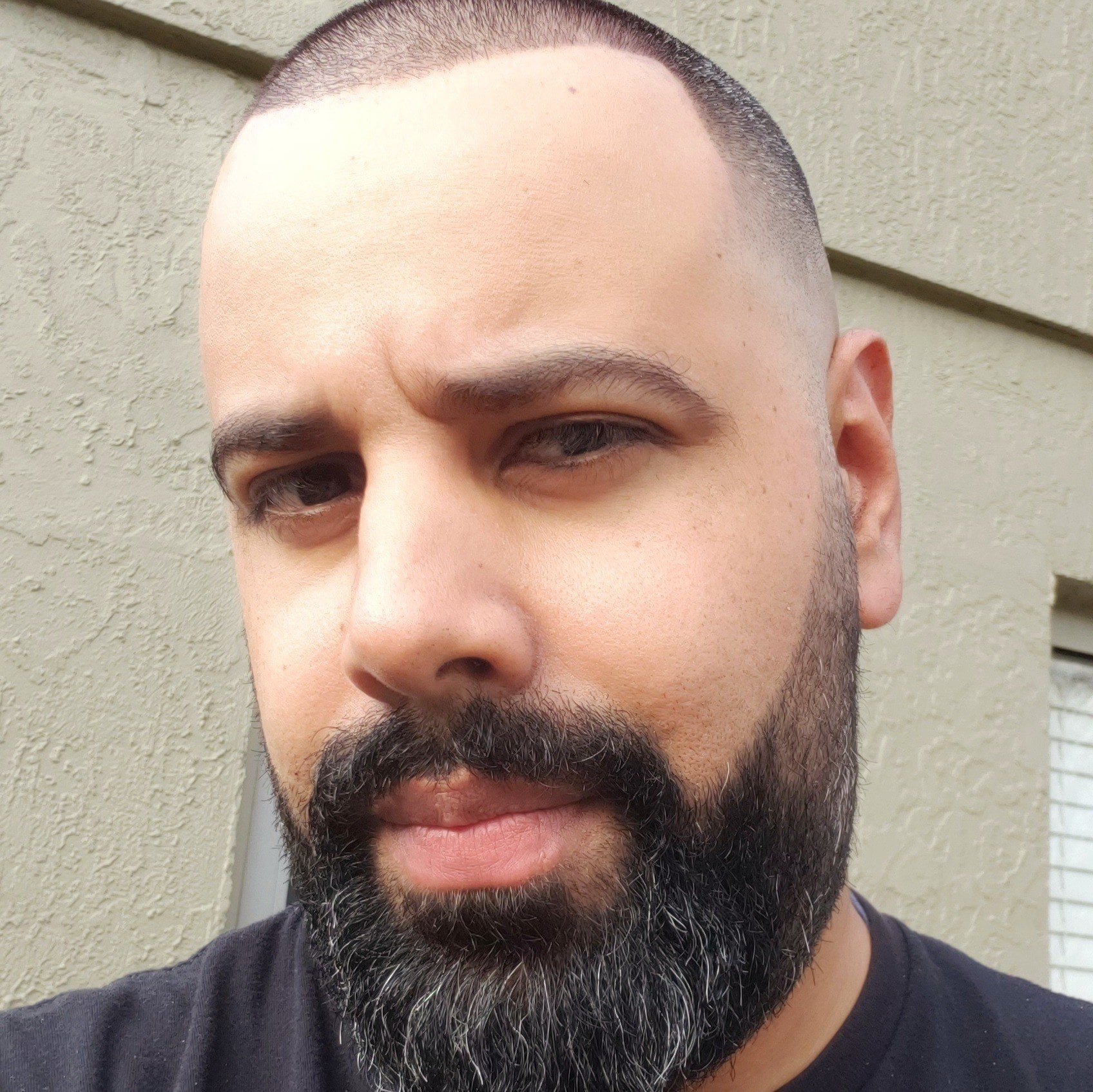We recently connected with Eric Pabon and have shared our conversation below.
Eric, looking forward to hearing all of your stories today. We’d love to hear about when you first realized that you wanted to pursue a creative path professionally.
No matter what I was doing to earn a living, I’ve always had this nagging creative itch. It presented in different ways, this overwhelming need for expression. Creating something from that is just a part of who I’ve always been. It wasn’t really until my thirties that I acquired the tools to make a successful business out of the kind of self-expression that I’d always just done for myself. I also realized pretty quickly that as satisfying as earning a living as an artist could potentially be, there was much more to it than that. I’ve been able to spread a little bit of joy through my work, which is something no other job has ever provided. There are these little moments – someone stops in their tracks and smiles at a piece of art, then goes to grab their partner because they’re so excited to show it to them. Or a kid asks for advice on how to be an artist and you get to give it. I love being able to do that, and typically what I say is this: Everyone is an artist. At some point in most people’s lives, they kind of just stop. The real trick to being an artist is to keep on creating, all your life.
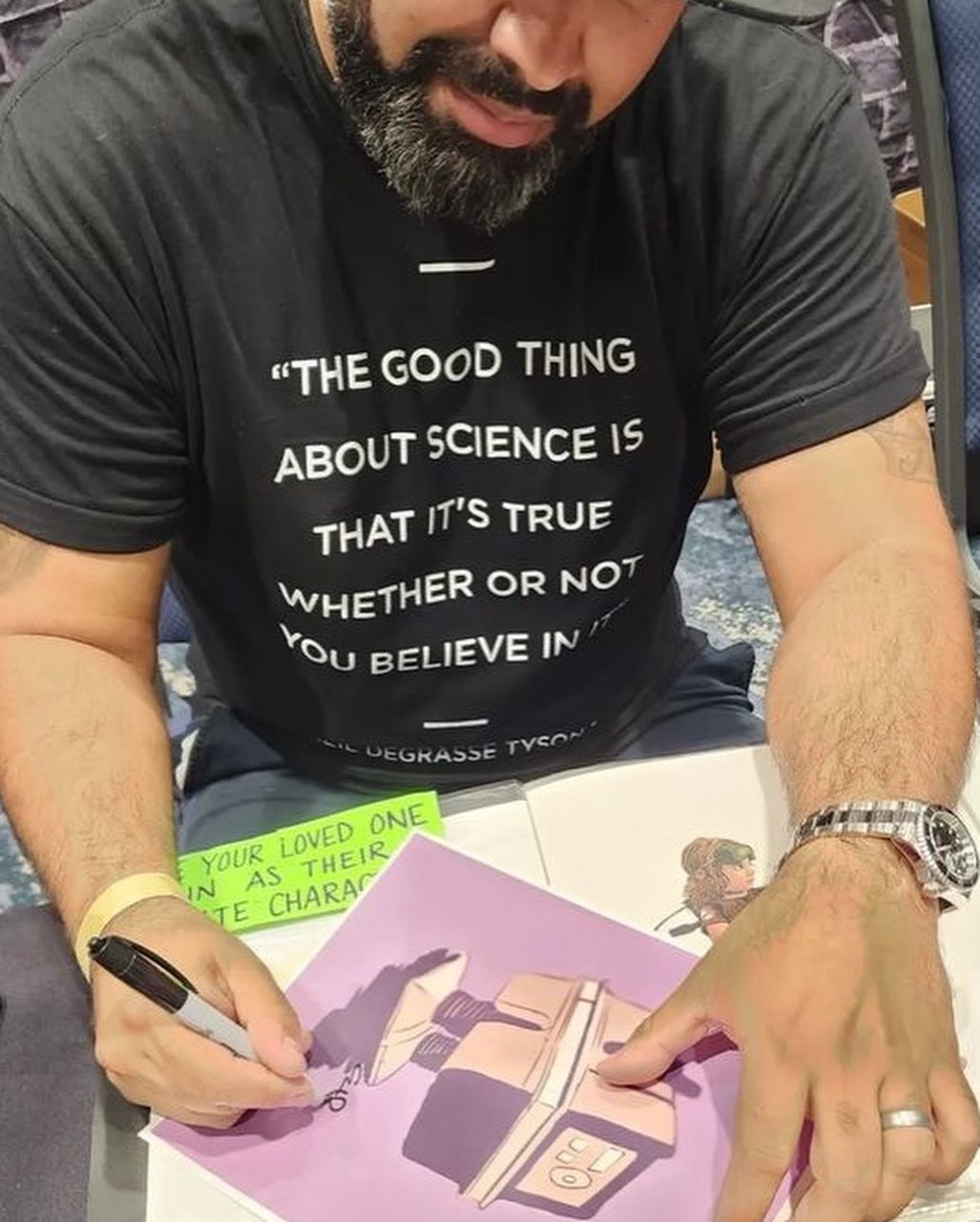
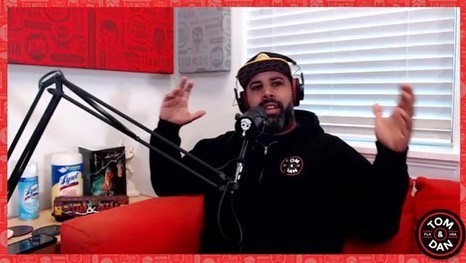
As always, we appreciate you sharing your insights and we’ve got a few more questions for you, but before we get to all of that can you take a minute to introduce yourself and give our readers some of your back background and context?
I am a visual artist based in the Orlando, Florida area. I do traditional and digital art/ graphic design, Most of my work is comic and pop inspired, though I’m always experimenting. One of the things that I care a great deal about is chipping away at the barrier to access to original, local art. There’s a little bit of a punk ethos to this. I want people who would love to have art in their homes not to feel like their only option is to buy some mass-produced thing from a big-box store. I try to keep my pricing accessible. There is a different feeling when you own something that has some real blood sweat and tears in it, or when you commission something and you can see your own creativity writ large.
I’ve been making art forever, but I really got my foot in the door professionally in Florida by doing work for a local podcast called “A Mediocre Time with Tom and Dan”. That show has an incredibly local and vibrant fan base who embraced what I do, and really helped as I grew the business. The crew on the show was incredibly supportive, and appearing on the program as a frequent guest over the years has been a big part of reaching a larger audience.
Central Florida has massive convention scene, and I frequently sell work at shows like Megacon and Central Florida Comic Con, as well as partnering with smaller cons, markets, galleries and breweries.
For the past three or so years, I’ve also been a host on the movie-review podcast “Masters of the Cinematic Universe”. I have a deep love of cinema, and we tackle a different movie on every episode.
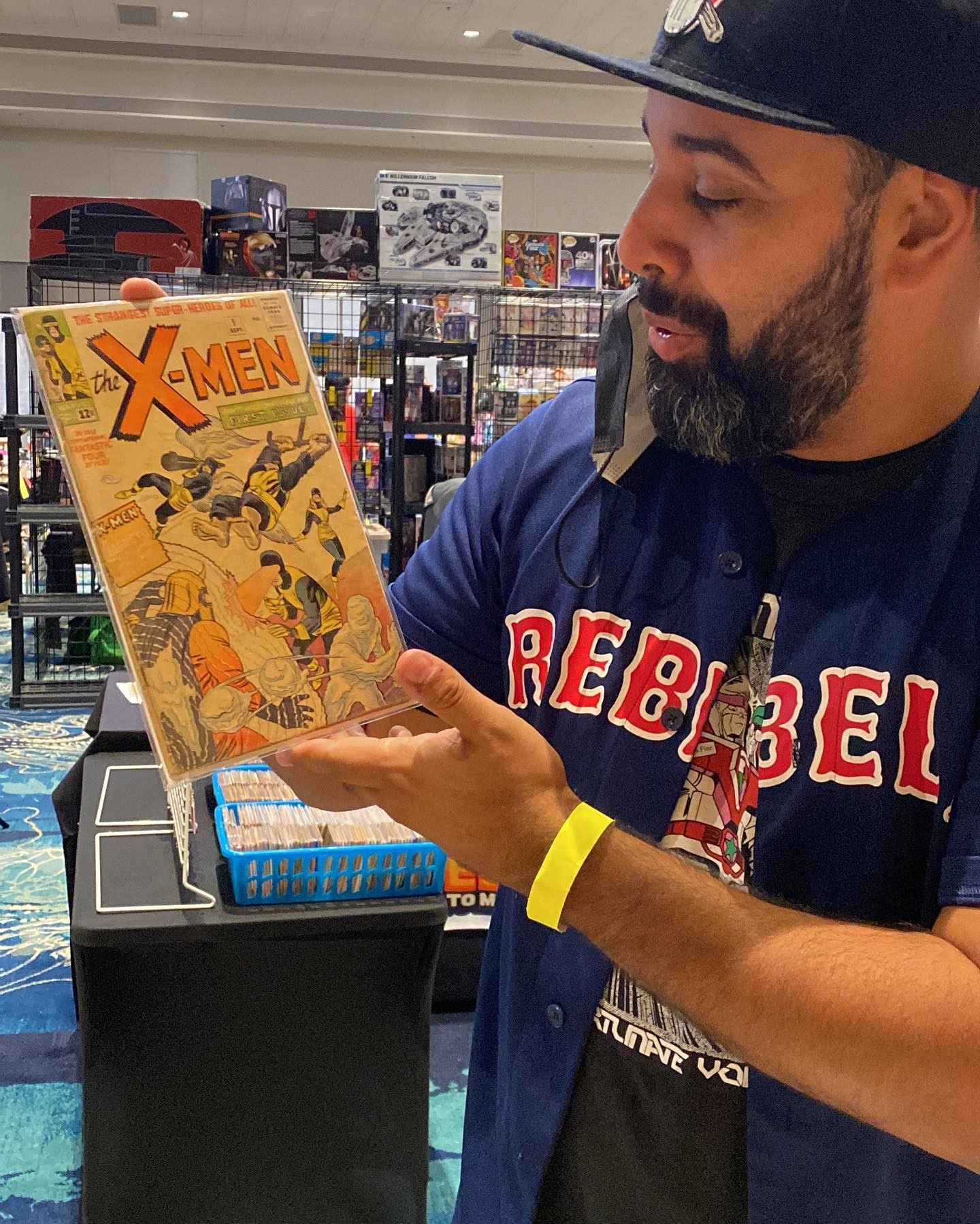
What can society do to ensure an environment that’s helpful to artists and creatives?
One of the big concerns and talking points in the arts lately is the effect of AI in our little industry. Everyone seems really, really worried – because they see it as a loss of income, as well as the homogenizing of artistic expression. I get it, but I think we’re gonna be okay. I really do. Even as AI grows to the extent that it can create something that is completely indistinguishable from something a human being created… I still think we’re gonna be okay. At the end of the day, the most valuable element to any piece of art is the knowledge that a person willed it into existence. The person who spent the $5 on 100 pieces of AI generated art was never going to be the person who valued that connection in the first place. So, it’s a little shortsighted to view that as a loss, much in the same way that the person who illegally downloaded the songs was probably never going to buy the album anyway. If a colorful and lively artistic community is going to thrive, we have to focus on that connection. At the end of the day, people understand that they are supporting small, DIY creators – and putting food on their tables.
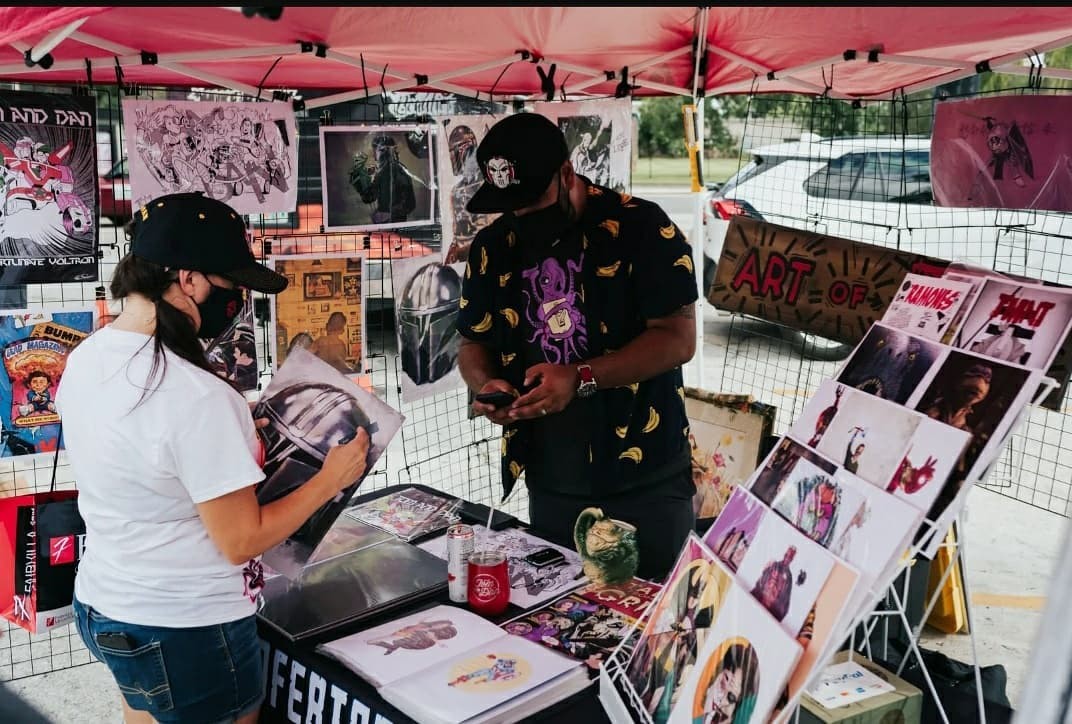
Alright – so here’s a fun one. What do you think about NFTs?
NFTs are kind of like Beanie Babies for artists. There was this unwarranted expectation that minting them would yield insane profits – which for artists is amazing. In some rare cases, the artists won – but by and large, the industry is stacked against those kinds of victories. The trend burned hot, but I don’t see it as “the future of art” by any means. In fact, the entire process feels more predatory than anything else.
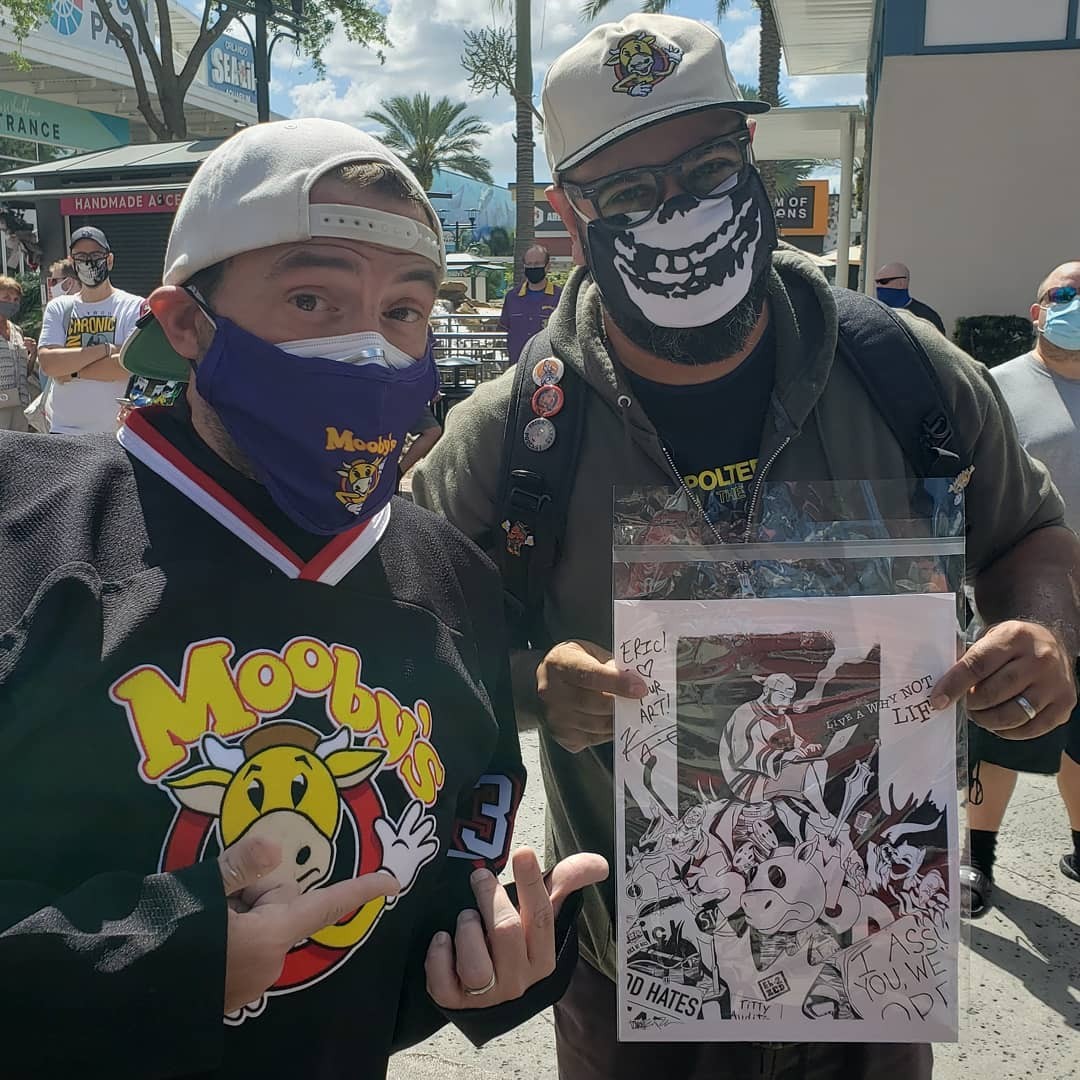
Contact Info:
- Website: artofericpabon.com
- Instagram: @artofericpabon
- Facebook: @artofericpabon


